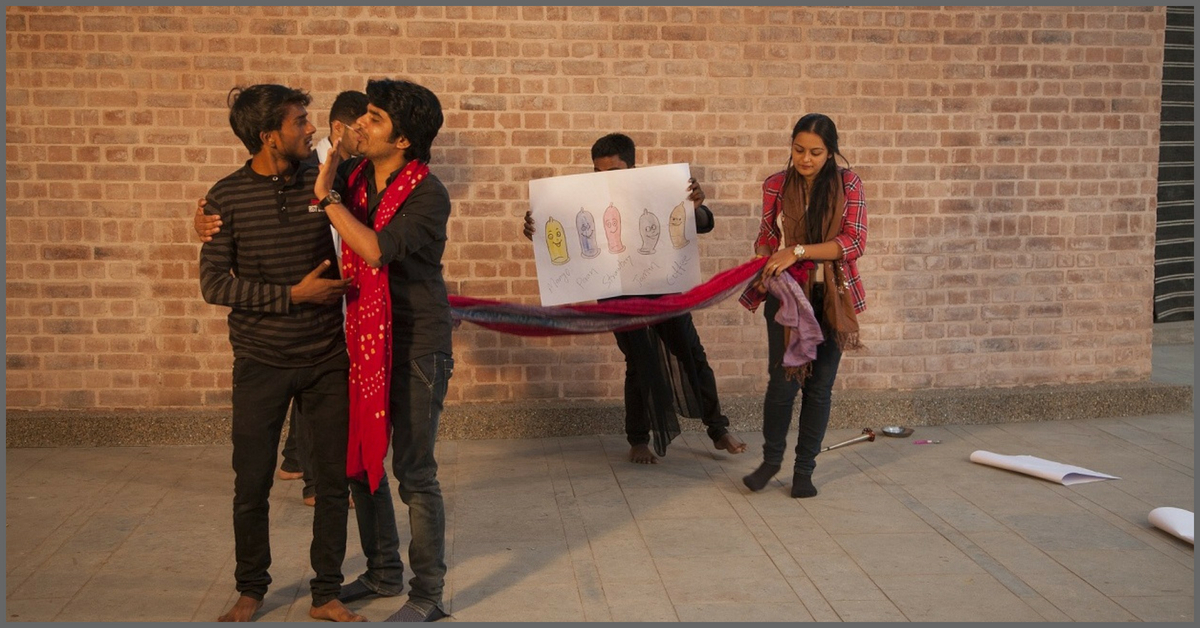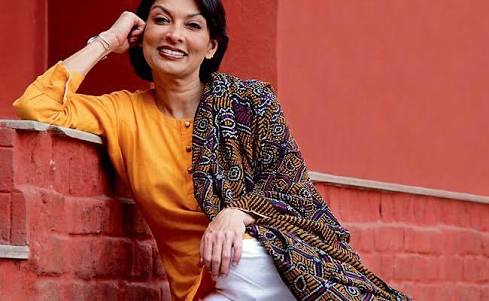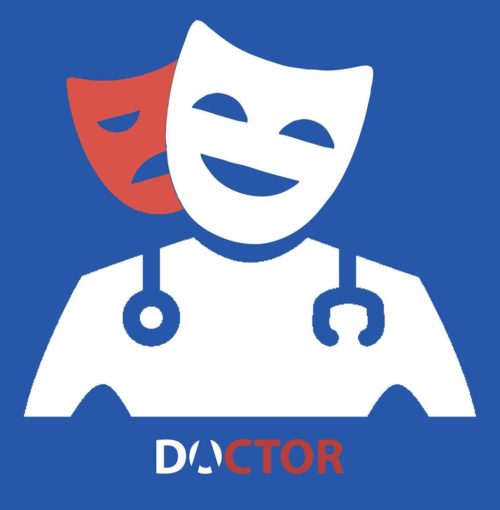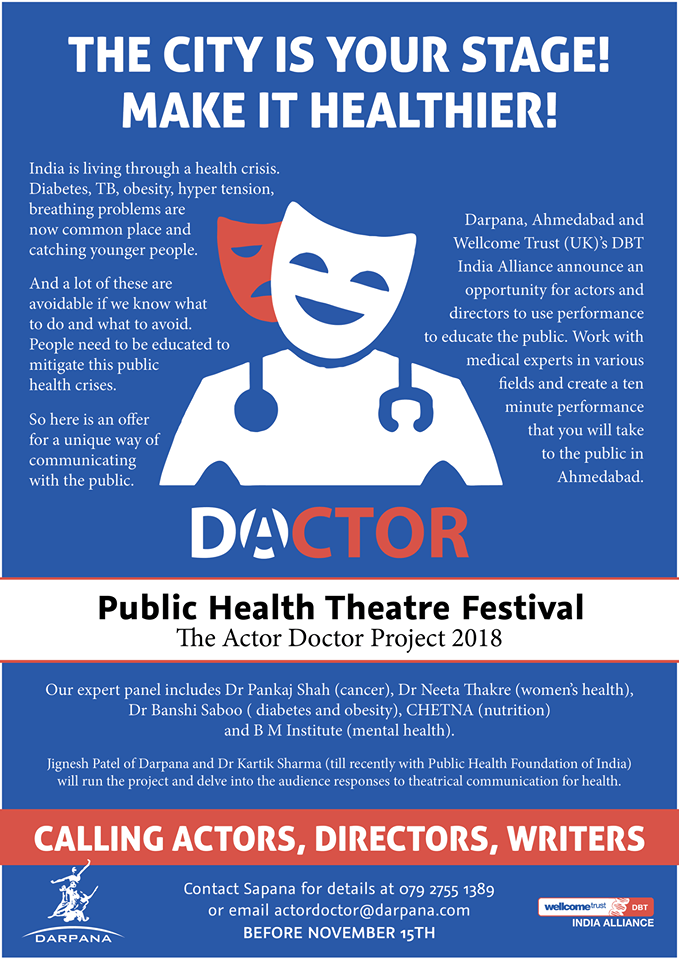Can Street Theatre Boost Citizen Health? This Ahmedabad Project Will Show You How!
This one-of-a-kind project is an effort by the Darpana Academy of Performing Arts to bridge the gap between health research and public awareness.

Theatre can go beyond just delighting the audience–it can break out of the straitjacket and be a mirror to contemporary society by raising awareness about urgent issues or argue for change. It can respond to social contexts through communication of explicit messages and thereby uplift spirits and open up minds.
Realising that theatre can also have a measurable impact on health and wellbeing, Mallika Sarabhai hit upon the idea of pressing street theatre into service for critical engagement on health issues through creative expression.

Thus was born India’s first Actor-Doctor project for which the Ahmedabad based Darpana School of Performing Arts, headed by Mallika, roped in some specialist doctors to act with young artists, drawing upon the dynamics of the prevalent health scene, backed by available data.
The project was conceptualised by Dr Kartik Sharma who was with the Public Health Foundation of India earlier. Dr Kartik and Mallika worked as project investigators for the novel initiative of the Actor-Doctor project.
“There was a gap between the public health research and its engagement with the people. So, this effort seeks to correct it,” says Dr Kartik.

To sensitise people on crucial health issues, the project was designed to work at three layers – the doctors who deal with public health research, the actors, and the directors (young as well as experts), and lastly the people.
The organisers arranged a two-day sensitisation workshop of the actors and the doctors before actual performances to decide upon the theoretical framework.
“There are crucial health issues, including some lifestyle diseases that we have to fight with. And arts are an amazing language to explore public health issues. This effort at sensitising people on such issues can be scaled up nationwide also,” observes Mallika.
For the performances, the actors and the doctors fanned out at various places across Ahmedabad, including shopping areas and food joints, some schools and colleges, residential areas in the walled city and the locality of the homeless people.
The project covered health issues including nutrition, mental health, suicidal tendencies, environment and sex education.

Touching upon nutrition, the script focused upon family traditions of the males partaking of food first while the females eat whatever remains, afterwards.
The script seeks to convey the message that women need more nutrients than men on account of iron deficiency because of blood loss during menstruation. The iron deficiency then may lead to anaemia, and the deficiency of vitamin B12 may lead to irritability and tingling effect in the hands and feet.
So, the audience is instructed to treat both sons and daughters alike.
The script on mental health centred upon depression and how to deal with it. The players warn against the perils of the competitive world, especially in the educational sector. As for social media, the actors also brought into focus the growing tendency of people today, to judge themselves by the ‘likes’ they get on the social media which is an unhealthy offshoot of the influence of social media.
Under mental health, the project also covered suicides and the stigma attached to having mental illness and not treating it.

The script appeals to the audience to put both physical ailment and mental illness on equal footing. The idea is that – “Just as we see the doctor when down with fever, we should see a psychiatrist when we have a troubled mind! That, in essence, would mean to live an empowered life, owning your own life and your story and refusing others to dictate how you feel about yourself. The message is – Do not attach a stigma to mental illness.”
The project also dealt with another subject that is a taboo in our society – sex education.
Programmed sex education can bring about socially desirable attitudes, practices and personal conduct on the part of children and adults that would best protect the individual as a human and the family as an institution. Such education could cover fertilisation, conception and development of the embryo and foetus as well as sexually transmitted infections and how these can be prevented.
Also Read: This Arts Programme in Delhi Is Using Theatre to Help Teenagers Become Changemakers
This could help young people to make informed decisions about their sexuality. A wise curriculum should also address social issues surrounding sexuality and reproduction, including cultural norms, family life and interpersonal relationships.
The project did not lose sight of the care of the environment that concerns all of us – the ecosystem, including all living organisms, in which we live. The plays on the environment were largely performed in schools and colleges to educate the young that our forests remove pollutants from the air and also cool our air temperatures, and pollutants can cause heart and lung problems.
The students are explained how they can live a sustainable life. And that would be by changing behavioural patterns as we are all creatures of habit – such as doing away with the use of plastic and choosing public transport.
You May Also Like: Kerala Is All Set to Recreate Its Traditional Magic Potion That Mixes Organic Farming and Theatre
The Actor–Doctor project of the Darpana School, precisely aims at engaging people with issues that are crucial in modern life. It also seeks to rouse the younger generation to action in matters concerning them.
(Written by Kaushik Joshi and Edited by Shruti Singhal)
Like this story? Or have something to share?
Write to us: [email protected]
Connect with us on Facebook and Twitter.
NEW: Click here to get positive news on WhatsApp!
This story made me
- 97
- 121
- 89
- 167
Tell Us More
We bring stories straight from the heart of India, to inspire millions and create a wave of impact. Our positive movement is growing bigger everyday, and we would love for you to join it.
Please contribute whatever you can, every little penny helps our team in bringing you more stories that support dreams and spread hope.



















